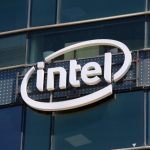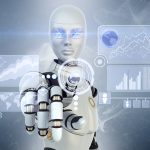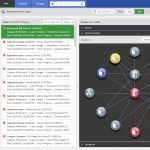Starting next year, Evernote employees could access your unencrypted notes

Evernote has published an update to its Privacy Policy, revealing that as of 23 January 2017, employees will be able to access unencrypted notes. The change is being wheeled in because of the apparent failings of machine learning.
Perhaps more worrying is the fact that Evernote says that it is not possible to opt out of having employees possibly accessing your unencrypted notes. The only way to fully protect your privacy is to delete all your notes and close your Evernote account.
The big security problems in 2017

If there’s one thing you can say with certainty about cyber-security in 2017, it’s that many companies are going to fail because they are simply not doing the right thing. Fundamental flaws still exist.
Until the technical people lift their heads up and see that security and business are different sides of the same coin, we will inevitably see more damaging attacks. When security people learn to speak in the language of business they will begin to understand just where in the organization they need to apply their expertise.
Apple letter all but confirms plans for self-driving cars and commitment to privacy

We've known (or at least believed) for some time that Apple has been working on some form of automated vehicle, but the company has remained tight-lipped about what it is up to. Now, however, a letter to the National Highway Traffic Safety Administration (NHTSA) gives the strongest official hint that Apple is working on something.
The letter -- written by Apple's Director of Product Integrity, Steve Kenner, back in November -- has just come to light, in it Apple praises NHTSA's policies on automated vehicles, and stresses the importance of machine learning, data sharing, and user privacy in ensuring the development and safety of such technologies.
Google successfully uses machine learning to detect diabetic retinopathy

Diabetes is a hell of a disease. While many people view it as nothing more than the inability to eat sweets, it is actually much more devastating than just that. If untreated, having high glucose levels can wreak havoc on a patient's body -- these folks can go blind, have limbs amputated, or worst of all, die.
Diabetic eye disease is caused by retinopathy. Affected diabetics can have small tears inside the eye, causing bleeding. Over time, they can lose vision, and ultimately, they can go blind. Luckily, Google has been trying to use machine learning to detect diabetic retinopathy. Guess what? The search giant has seen much success. Not only are the computers able to detect the disease at the same level as ophthalmologists, but Google is actually slightly better!
Twitter shareholder letter: 'meaningful' safety update, machine learning, timeline changes, and redundancies

Twitter's troll and harassment problem is well-documented, and the social media site has faced mounting criticism over its apparent inability to keep users in check. In a letter to shareholders, Twitter today announced that it will be making "meaningful updates" to its safety policy -- but it doesn’t say what they might be.
The letter says that Twitter wants to "drive value" across three key areas: audience, content, and revenue. For the audience side of things, this means timeline tinkering and contextualizing content. For content, it means partnerships, streaming video and syndication. To make the most of revenue, some fat must be trimmed, and this means internal restructuring and job losses.
Open source Microsoft Cognitive Toolkit democratizes AI and deep learning

Like many technology companies, Microsoft is pinning a lot on AI -- including the areas of speech and image recognition. To help speed up development, and to enable others to start working on their own projects, the company has released an updated, open source version of the Microsoft Cognitive Toolkit.
This is a deep learning toolkit, previously known as the Computational Network Toolkit (CNTK), and it's available for anyone to use completely free of charge. The toolkit has applications far beyond speech recognition, and it has already been used in Bing, and the latest version includes support for Python and C++.
Updated Google Photos uses AI to animate and auto-rotate your pictures... and more

Google Photos has received a fairly significant update that sees the arrival of four key new features. Three of them are focused on sharing and viewing your photos, but the fourth is an AI-powered auto-rotate function that ensures you'll no longer have to look at photos on their sides.
As Pixel and Pixel XL owners (as well as other Android users who don't mind a drop in quality) have unlimited Google Photo storage at their disposal, Google is introducing a Facebook-style restrospective feature. Google says it will "make it easier to look back at your fondest memories", but there is more to discover.
Apple acquires machine learning startup TupleJump

Apple is on a mission to buy virtually every machine learning start-up it stumbles upon. The latest "victim" in its shopping spree is an Indian-US company called TupleJump. The news was first broken by TechCrunch, and even though Apple is yet to confirm the acquisition there are signals out there to back such an event.
First things first. Apple did give a statement, and a pretty vague one that is arguably open for interpretation. "Apple buys smaller technology companies from time to time, and we generally do not discuss our purpose or plans".
New software applies machine learning to contract reviews

When contracts need to be reviewed, renewed or revised, the process tends to be labor intensive and time consuming.
Contract delivery and analytics specialist Seal Software is launching version 5.0 of its contract analysis software, which uses machine learning to speed up the process. It also includes a new add-in which allows contract data extraction and review capabilities to be used within Microsoft Word.
Intel buys machine learning startup Nervana

Intel is buying machine learning start-up Nervana, and it’s paying some serious money for it. According to multiple media sources, the 48-person start-up was acquired for a stunning $408 million (£312m).
Nervana is an artificial intelligence company which is looking to integrate AI beyond the usual software -- it wants to squeeze it into the chips themselves. And who better to team up with to achieve that goal than Intel -- one of the biggest chipmakers in the world.
SafeDNS uses machine learning to detect malicious internet resources

However careful you are online it's always possible to get caught out by a maliciously coded website or advert that leads to malware ending up on your machine.
Online safety service SafeDNS is launching a new system for detecting malicious internet resources, which it claims blocks close to 100 percent of them for better online protection.
Machine learning, big data analytics and Internet of Things skills are in high demand

Both virtual and augmented reality, machine learning and big data analytics, as well as the Internet of Things, are the most in-demand skills, according to a new report by Packt.
The report, titled "Skill Up", polled more than 11,500 worldwide developers and IT professionals. Besides identifying the most sought-after skills, it also says that security is one of the highest-paying industries in 2016, especially for freelancers.
New solution adds machine learning analytics to VMware environments

With virtualized environments performance issues can be hard to pinpoint. IT departments can find it difficult to spot whether the cause is in the application, network, storage, or virtualization layer of the infrastructure.
Software optimization specialist SIOS is bringing machine learning to bear on this problem with the latest release of SIOS iQ, its analytics software for VM environments.
New platform uses machine learning to streamline mobile development

Businesses are under increasing pressure to create mobile apps, but often lack the resources to do so effectively. Workplace mobility specialist PowWow Mobile is launching a new platform that lets users build apps faster and with less code.
SmartUX Studio is designed to easily transform functional web-based or Windows business applications into intuitive, modern mobile app experiences.
SIOS updates its machine learning solution for virtual environments

Since the launch of its machine learning tool for IT analytics last year, SIOS Technology Corp has released regular updates to help maximize the availability and efficiency of virtualized environments.
New features in SIOS iQ 3.5 deliver greater accuracy and precision in capacity utilization and performance analysis for VMware environments. It also includes dashboard enhancements for improved usability and a 'graphical topological impact' view to enable faster identification and resolution of issues.
Recent Headlines
Most Commented Stories
BetaNews, your source for breaking tech news, reviews, and in-depth reporting since 1998.
© 1998-2025 BetaNews, Inc. All Rights Reserved. About Us - Privacy Policy - Cookie Policy - Sitemap.